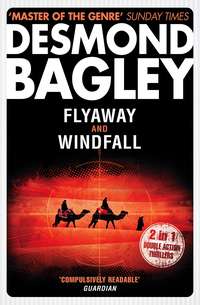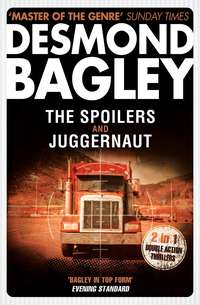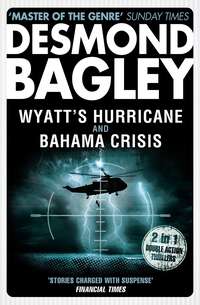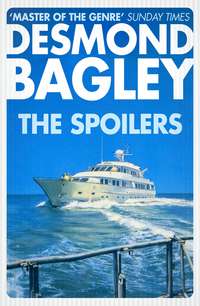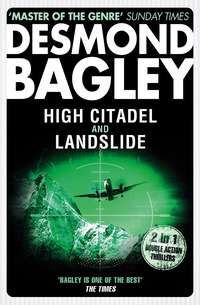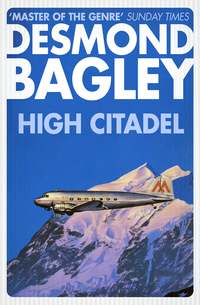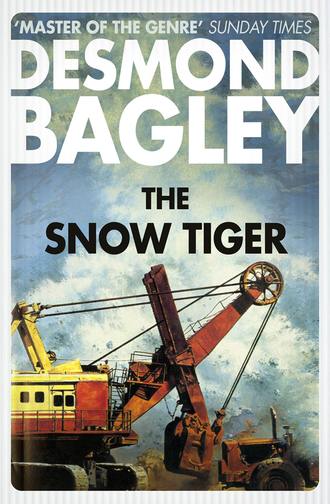
Полная версия
The Snow Tiger
‘Alone – without her?’
‘Alone.’
Ben did not appear to be elated; he merely nodded his head gravely. He said, ‘There’s quite a town there now. I doubt if you’d recognize it, it’s grown so much. I was there a couple of years ago before my damned doctor said I shouldn’t travel any more. The place even has a mayor. The first mayor’s name was John Peterson. Quite a power in the community the Petersons are.’
‘Oh Jesus!’ said Ian. ‘Are they still there?’
‘What would you expect? Of course they’re still there. John, Eric and Charles – they’re still there.’
‘But not Alec.’ Ian appeared to be addressing the back of his hands.
‘No – not Alec,’ Ben agreed.
Ian looked up. ‘You’re really asking for something, aren’t you? What the hell do you expect of me? You know damned well that putting a Ballard into Huka is like putting a detonator into a stick of dynamite.’
Ben’s eyebrows rose. ‘The Petersons being the dynamite, I presume.’ He leaned forward. ‘I’ll tell you what I want. I want you to run that bloody mine better than it’s been run up to now. It’s a tough job I’ve handed you. That old fool, Fisher, couldn’t keep control – that’s one thing. For another, Dobbs, the mine manager, is a chronic fence-sitter – and, for number three – Cameron, the engineer, is a worn-out American has-been who is holding on with his fingertips because he knows it’s the last job he’ll ever have and he’s scared witless that he’ll lose it. You have to put some backbone into that lot.’
Ben leaned back in his chair. ‘Of course,’ he said musingly, ‘the Petersons won’t welcome you with open arms. It’s not likely, is it, when it’s a family tradition of theirs that they were robbed of the mine? A lot of poppycock, of course, but that’s what they believe – and, Ian, always remember that men are not governed by facts but by what they believe.’ He nodded. ‘Yes, I can see you might have trouble with the Petersons.’
‘You can stop needling,’ said Ian Ballard. ‘I said I’d go.’
The old man made as if to rise, then paused. ‘There is one thing. If anything serious should happen – to Ballard Holdings or to me – get in touch with Bill Stenning.’ He thought awhile. ‘On second thoughts, don’t bother. Bill will get in touch with you fast enough.’
‘What’s this about?’
Don’t worry; it may never happen.’ Ben got slowly to his feet and made his way to the door. He stopped halfway across the room and held up his blackthorn. ‘I doubt if I’ll want this any more. I’ll send it to you tomorrow. You’ll need it. When you’ve finished with it don’t send it back – throw it away.’
He paused outside the door and raised his voice. ‘You can come in now, Harriet. No need to listen at the keyhole.’
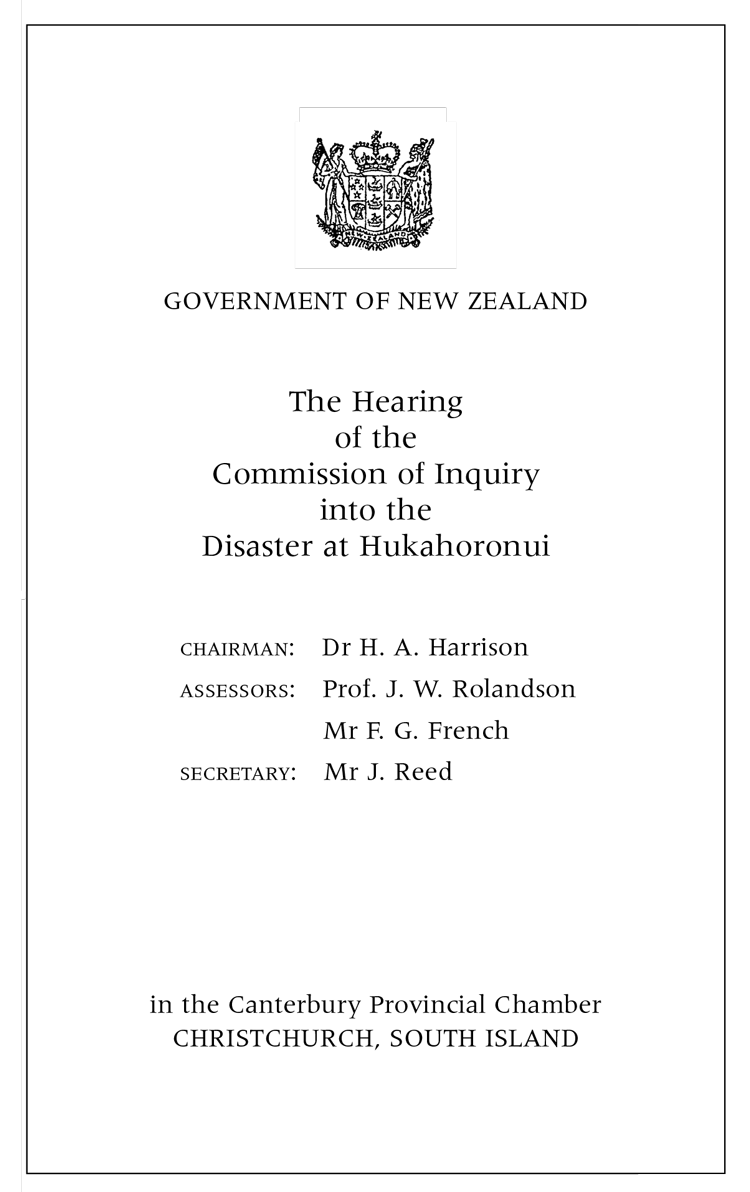
ONE
The great hall was unexpectedly and floridly magnificent. Built in the mid-nineteenth century at the height of the Gothic Revival and designed by an architect who was, equally unexpectedly, a direct descendant of Simon de Montfort, it brought medieval England to the Southern Hemisphere and to that more-than-English city, Christchurch. Lofty, with an arched ceiling, painted and carved, it abounded in corbels, pillars, lancets and wood panelling, and every surface that could possibly be carved was carved to a fare-thee-well. There was also a lot of stained glass.
Dan Edwards, doyen of the Press of Christchurch, was blind to the incongruity of the scene; he had seen it too often before. He was more concerned about the floor which creaked abominably as the ushers walked beneath the Press gallery setting out note-pads and pencils. ‘The acoustics are lousy,’ he said. ‘And that bloody kauri floor doesn’t make things better.’
‘Can’t they oil it or something?’ asked Dalwood, who was from Auckland.
‘They’ve tried everything but nothing seems to work. I’ll tell you what – let’s do a pool. If I miss anything I’ll take it from you – and vice versa.’
Dalwood shrugged. ‘Okay.’ He looked over the edge of the Press gallery to the dais immediately beneath. Three high-backed chairs were set behind the rostrum, and before each chair was a new foolscap note-pad with two ball-point pens to the left and three newly sharpened pencils to the right. Together with the water carafes and the glasses, the whole looked remarkably like place settings at a dining table.
Edwards followed his glance and then nodded towards the public gallery, already full, at the north end of the hall. ‘They’re going to make a meal of this.’
Dalwood nudged him and indicated the door beneath the public gallery. ‘There’s young Ballard. He’s brought a legal army with him.’
Edwards studied the young man who walked at the head of a phalanx of older, soberly dressed men. He pursed his lips. ‘The question is whether they’re representing him or the company. If I were Ballard I’d be keeping a tight sphincter.’
‘A sacrificial lamb?’
‘A lamb to the slaughter,’ agreed Edwards. He looked down at the rostrum. ‘Things are happening.’
The hum of conversation died as three men took their places at the chairs behind the rostrum. One of the two stenographers looked up and held his hands poised expectantly over the keys of his machine. There was a rustle as everyone arose.
The three men sat down and a fourth came forward and sat at the desk in front of the rostrum. He laid a sheaf of papers before him and consulted the uppermost document. The man above him, in the centre of the rostrum, was elderly with a shock of white hair and deeply lined face. He looked down at the virgin pad in front of him and pushed it away. When he spoke he spoke quietly and in an even voice.
‘In the winter of the year, on the eighteenth of July, a disaster occurred in the township of Hukahoronui on the South Island of New Zealand in which fifty-four people lost their lives. The New Zealand Government has appointed a Commission of Inquiry, of which I am Chairman. My name is Arthur Harrison and I am Rector of Canterbury University.’
He moved his hands apart. ‘With me are two assessors, both well qualified by their knowledge and experience to sit on this Commission. On my left we have Professor J. W. Rolandson of the Department of Scientific and Industrial Research.’ Harrison paused. ‘In the interests of brevity his department will, in future, be referred to as the DSIR.’
Rolandson smiled and nodded.
‘On my right sits Mr F. G. French of the New Zealand Mines Department. The gentleman immediately below me is Mr John Reed, barrister-at-law; he is Secretary to the Commission.’ Harrison surveyed the tables in the hall. ‘There are several interested parties present. Perhaps they would identify themselves, beginning from the right.’
The well-fed, middle-aged man seated next to Ballard rose to his feet. ‘John Rickman, barrister, representing the Hukahoronui Mining Company, Proprietary, Limited.’
There was a long pause before the man at the next table got to his feet, and Edwards whispered, ‘Ballard has no personal representation.’
‘Michael Gunn, barrister, representing the General Miners’ Union of New Zealand and the relatives of its members who lost their lives in the disaster.’
‘Alfred Smithers, barrister, representing the Ministry of Civil Defence.’
‘Peter Lyall, barrister, representing Charles Stewart Peterson and Eric Parnell Peterson.’
There was a sound of surprise in the room, a compound of sudden involuntary movement and indrawn breath. Edwards looked up from his notes. ‘Why should they think they need legal help? This sounds promising.’
Harrison waited until the stir died away. ‘I see we are greatly endowed with legal aid. I must therefore warn the legal gentlemen present that this is not a Court of Law. It is a Commission of Inquiry which is empowered to make its own rules of procedure. Evidence will be heard here which would not necessarily be admissible before a Court of Law. The object of this Commission is to find the truth of what happened during the events which led up to the avalanche at Hukahoronui, during the avalanche itself, and what happened afterwards.’
He leaned back in his chair. ‘Adversary tactics, such as are common in law courts, will be frowned upon here. We wish to find the truth unimpeded by legal technicalities, and the reason we wish to find the truth is to make certain that such a disaster does not happen again. The force of this consideration is so great that the Commission hereby rules that any evidence given here may not be used in any future legal action other than criminal which may eventuate as a result of the avalanche at Hukahoronui. The protection of lives in the future is of more importance than the punishment of those who may be felt to be guilty of acts of omission or commission arising out of the disaster. The Commission is legally empowered to make such a ruling and I hereby do so.’
Gunn hastily rose to his feet. ‘Mr Chairman; do you not think that is an arbitrary decision? There will be matters of compensation arising. If interested parties are denied the use of evidence in a future legal action, surely an injustice will be done.’
‘Mr Gunn, I have no doubt that the government will appoint an arbitrator who will study the findings of this Commission and make the necessary dispositions. Does that satisfy you?’
Gunn bobbed his head, a pleased expression on his face. ‘Indeed it does, Mr Chairman.’
Dalwood murmured to Edwards, ‘No wonder he’s pleased. It’s all going to happen here – a bloody drumhead courtmartial with no holds barred.’
Edwards grunted. ‘He’ll not get much past old Harrison.’
‘And now we come to the question of witnesses. Some citizens have come forward voluntarily to give evidence here, others have been subpoena’d by one or more of the interested parties.’ Harrison frowned. ‘I, and my fellow members on the Commission, have been much exercised as to how the evidence should be taken, and we have decided that it shall be taken in chronological order, insofar as that is possible. Because of this, any person giving evidence may be asked to step down before his evidence is wholly completed if we find it necessary to do some filling in. It follows, then, that all witnesses should hold themselves in readiness at all times during the sitting of the Commission.’
‘Mr Chairman!’
Rickman was on his feet. Harrison said, ‘Yes, Mr Rickman?’
‘Such a condition is likely to be onerous on certain of the witnesses. Some of them are busy men with duties which lie outside this room. This is likely to be a long inquiry and I do not feel that such a condition is entirely fair.’
‘When you refer to certain of the witnesses can I take it that you refer to Mr Ballard?’ asked Harrison drily.
‘Mr Ballard is one such witness,’ conceded Rickman. ‘Out of consideration for him it would be better if he could give his evidence and retire.’
‘Is Mr Ballard a citizen of New Zealand?’
‘No, Mr Chairman; he is a United Kingdom subject.’
‘And would his retirement from this hall be as far away as England?’
Rickman bent down and spoke quietly to Ballard who replied in equally low tones. Rickman straightened. ‘It is true that there are certain matters in the United Kingdom which urgently require Mr Ballard’s attention.’
Harrison’s voice was cold. ‘If I thought it was Mr Ballard’s intention to leave New Zealand during the sitting of this Commission I would ask the relevant authority to relieve him of his passport. This inquiry is a serious matter, Mr Rickman.’
‘I am sure it is not Mr Ballard’s intention to flout the authority of the Commissioners,’ said Rickman hastily. He bent down again and spoke to Ballard, then he rose and said, ‘Mr Ballard has no intention of leaving New Zealand at the present time.’
‘I would prefer to hear that from Mr Ballard.’ Harrison leaned forward. ‘Is that correct, Mr Ballard?’
Ballard stood, and said in a low voice. ‘That is correct, sir. My time is at the disposal of the Commissioners.’
‘In that case you will have no objection to attending this inquiry with the rest of the witnesses. Thank you.’
In the Press gallery Edwards said, ‘My God! Whoever Rickman is representing, he’s not representing Ballard. He set him up just to knock him down.’
Harrison said, ‘This inquiry will not have the formality of a law court, but neither will it be a free-for-all. Representatives of the interested parties may address the witnesses at the discretion of the Chairman. It will not be necessary to disturb the sacro-iliac by standing each time – a mere raising of the hand will suffice. The assessors may question the witnesses in their respective fields of expertise.’
He put his hands together. ‘Since we are gathering information in chronological order it becomes necessary to decide at which point of time to begin. From depositions laid before the Commission I gather that it was the appearance of Mr Ballard in Hukahoronui which led to a series of events which may – or may not – have relevance to the disaster which took place some weeks later. That is for this inquiry to decide. Be that as it may, I think the first witness should be Mr Ballard.’
Reed, the secretary, said, ‘Will you come forward, Mr Ballard, and sit down there?’ He indicated an ornately carved chair a little to the right of the rostrum. He waited until Ballard was seated, then said, ‘Your name is Ian Dacre Ballard?’
‘Yes, sir.’
‘And you are managing director of the Hukahoronui Mining Company, Proprietary, Limited?’
‘No, sir.’
A hum as of a disturbed hive of bees filled the air. Harrison waited until it had died away, then said quietly, ‘All present will be silent during the questioning of witnesses.’ He leaned forward. ‘Thank you, Mr Reed; I’ll take it from here. Mr Ballard, at the time of the avalanche were you managing director of the company?’
‘Yes, sir.’
‘Can you give me a reason why you are no longer in that position?’
Ballard’s voice was colourless. ‘I was suspended from my duties a fortnight after the disaster.’
‘I see.’ Harrison’s eyes flicked sideways as he saw a hand raised. ‘Yes, Mr Gunn?’
‘Can the witness tell us who owns the Hukahoronui Mining Company?’
Harrison nodded to Ballard, who said, ‘It’s a wholly-owned subsidiary of New Zealand Mineral Holdings, Limited.’
‘And that company is just a shell instituted for legal and financial reasons, is it not? Who owns it?’
‘It is owned substantially by the International Mining Investment Corporation.’
‘And who has the controlling interest in the International Mining Investment Corporation?’
‘Mr Chairman!’ Rickman said sharply. ‘Is there provision in your procedure for objections?’
‘Of course, Mr Rickman. What is your objection?’
‘I cannot see what this line of questioning has to do with an avalanche on a hillside.’
‘Neither can I,’ said Harrison. ‘But no doubt Mr Gunn can make it clear.’
‘I think the answer to my last question will make it quite clear,’ said Gunn. ‘I asked who owns the controlling interest in the International Mining Investment Corporation.’
Ballard raised his head and said clearly, ‘Ballard Holdings, Limited, registered in the City of London.’
Gunn smiled. ‘Thank you.’
‘Well, well!’ said Edwards, scribbling rapidly. ‘So he’s one of those Ballards.’
Dalwood chuckled. ‘And Gunn is gunning for Rickman. Up the workers and down with international capital. He smells money.’
Harrison tapped lightly with his gavel and the hall became quiet again. ‘Mr Ballard, do you own shares – or any interest whatever – in Ballard Holdings? Or in any of the companies mentioned?’
‘No, sir.’
‘Does any of your family own any such interest?’
‘Yes; my three uncles and some of my cousins.’
‘Not your father?’
‘He is dead.’
‘How did you come to be appointed managing director of the Hukahoronui Mining Company?’
Ballard shrugged. ‘The company is an old family concern and I suppose that …’
‘Can the witness describe his qualifications for the position?’
Harrison jerked his head around to identify the source of the interruption. ‘You will oblige me by not calling out in this hall, Mr Lyall. Further, you must not interrupt a witness.’ In a milder voice he said, ‘However, the question is relevant and the witness will answer.’
‘I have a degree in mining engineering from Birmingham University. I have done post-graduate studies in South Africa and the United States.’
Lyall had his arm firmly in the air by this time. ‘But no practical experience as a mining engineer?’
Pink spots glowed in Ballard’s cheeks but he appeared to be in control as he said to Harrison, ‘May I finish answering Mr Lyall’s first question?’
‘Of course.’ Harrison looked at Lyall. ‘Mr Lyall: you will not interrupt the witness, and you will address your questions through me unless I indicate otherwise. Go on, Mr Ballard.’
‘I was about to say that, apart from the engineering studies, I attended the Harvard Business School for two years. As for practical experience as a mining engineer, that would be called for if I professed to be a mining engineer, but as managing director my field was rather that of business administrator.’
‘A valid point,’ said Harrison. ‘A managing director need not have the technical expertise of the men he directs. If it were so a large number of our managing directors would be immediately unemployed – and possibly unemployable.’
He waited until the laughter died away, then said, ‘I do not see the point in further questioning along those lines, Mr Lyall.’ As Lyall’s hand remained obstinately raised, he said, ‘Do you have a further – and different – question?’
‘Yes, Mr Chairman. I am reliably informed that when Mr Ballard appeared in Hukahoronui he was unable to walk except with the aid of a stick. Is this correct?’
‘Is this relevant, Mr Lyall?’
‘I believe so, sir.’
‘Witness will answer the question.’
‘It is correct.’
Lyall, his hand up, remained punctiliously silent until Harrison nodded at him curtly. ‘Can you tell us why?’
‘I broke my leg in a skiing accident in Switzerland.’
‘Thank you, Mr Ballard.’
‘I can’t say that I see the relevance,’ observed Harrison. ‘But no doubt it will appear in time.’
‘It was in an avalanche,’ said Ballard.
There was dead silence in the hall.
TWO
Harrison looked across at Lyall. ‘The significance still escapes me,’ he said. ‘And since Mr Lyall does not see fit to pursue the subject I think we should carry on. Mr Ballard, when did you arrive in Hukahoronui?’
‘On the sixth of June – six weeks before the avalanche.’
‘So you had not been there very long. Was Hukahoronui what you expected?’
Ballard frowned in thought. ‘The thing that struck me most was how much it had changed.’
Harrison’s eyebrows rose. ‘Changed! Then you had been here before?’
‘I lived there for fifteen years – from infancy until just after my sixteenth birthday.’
Harrison made a note. ‘Go on, Mr Ballard. How had Hukahoronui changed?’
‘It was bigger. The mine was new, of course, but there were more houses – a lot more houses.’ He paused. ‘There was a lot more snow than I seem to remember from my childhood.’
Professor Rolandson of the DSIR said, ‘It is a matter of record that the snow precipitation in the Southern Alps was exceptionally high this past winter.’
Ballard had been depressed as he drove west from Christchurch in a company Land-Rover. He was going back to his origins, to Hukahoronui which lies in an outrider of the Two Thumbs Range, and which he had never expected to see again.
Hukahoronui.
A deep valley in the mountains entered by a narrow rock-split gap and graced with stands of tall trees on the valley slopes. A river runs through, cold from the ice water of the high peaks, and there is a scattering of houses up the valley, loosely centred about a church, a general store and a village school. His mother had once been the schoolteacher.
He hated the place.
It was a bad place to get to in thick snow. There had been heavy snowfalls and even with snow tyres and four-wheel drive Ballard found the going tricky. As far as he could remember there had not been a snow like that in those parts since 1943, but of that his memory was understandably hazy – he had been four years old at the time. But he had particular reasons for remembering the heavy snow of that year.
After a lot of low gear work he eventually reached the Gap and he pulled off the road on to a piece of level ground overlooking the river gorge where he contemplated Hukahoronui.
It had certainly changed, just as old Ben said it had. In the distance was a little township where no township had been. On one side, under the western slope of the valley, was a cluster of industrial buildings, presumably the milling works and refinery belonging to the mine. A streamer of black smoke coming from a tall chimney was like a stain against the white hillside beyond.
The township spread along the valley floor with most of the houses to the west of the river which had been bridged. The valley people had talked inconclusively for years about putting a bridge across the river, and now it had been done at last under the prodding thrust of an affluent economy. That was probably to be chalked up on the credit side; you had to pay the price of the mine to get the bridge.
Beyond the township there did not seem to be much change. In the far distance Ballard saw Turi’s house beneath the great rock called Kamakamaru. He wondered if the old man was still alive or whether the smoke coming from that distant chimney rose from the fireside of another. Turi had been an old man even when Ballard left the valley, although age in a Maori is difficult to estimate, especially for a youth of sixteen. At sixteen anyone over forty is verging on decrepitude.
But there was something else about the valley that was strange and Ballard was puzzled to determine what it was. A change had occurred which had nothing to do with the mine or the new town and he tried to match up sixteen-year-old memories with the actuality before him. It was nothing to do with the river; that still ran the same course, or seemed to.
And then he found the change. The hill slope on the western side was now almost completely treeless. Gone were the stands of tall white pine and cedar, of kahikatea and kohekohe – the hillside had been stripped almost completely bare. Ballard looked up at the higher slopes of the mountain to where the snows stretched right up to the base of the crags in one smooth and beautiful sweep. It looked good for skiing.
He switched on the engine and went on down into the new town. As he approached he was impressed by the way it had been laid out. Although much detail was blanketed by snow he could see the areas which, in summer, would be pleasant open gardens and there was a children’s playground, the swings and slides, the seesaws and the jungle gym, now white-mantled and stalactited with icicles and out of use.
Although the house roofs were heavily laden with snow the road was quite clear and had apparently been swept recently. Coming into the town centre he came across a bulldozer clearing the road with dropped blade. There was a name on its side: HUKAHORONUI MINING CO. (PTY) LTD. It seemed as though the mine management took an interest in municipal affairs. He approved.
There were houses built along the bluff that projected into the river; when Ballard was a child that was called the Big Bend and that was where they had their swimming hole. Peterson’s store used to be at the base of the bluff, and so it still was, although it took him a long time to recognize it. In his day it had been single-storey with a corrugated iron roof, a low building with spreading eaves which protected against the summer sun. There used to be chairs on the veranda and it was a favourite place for gossip. Now it was two-storey with a false façade to make it look even larger, and there were big plate-glass windows brightly lit. The veranda had gone.


